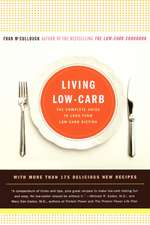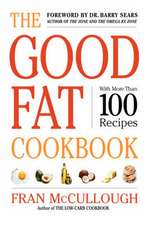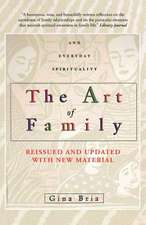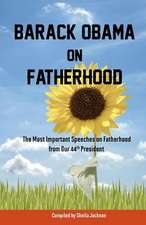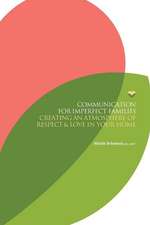Good Fat
Autor Fran McCullough Cuvânt înainte de Dr. Barry Searsen Limba Engleză Paperback – 17 mai 2004
Preț: 147.57 lei
Nou
Puncte Express: 221
Preț estimativ în valută:
28.24€ • 29.38$ • 23.31£
28.24€ • 29.38$ • 23.31£
Carte disponibilă
Livrare economică 24 martie-07 aprilie
Preluare comenzi: 021 569.72.76
Specificații
ISBN-13: 9780743257398
ISBN-10: 0743257391
Pagini: 384
Ilustrații: boxes and recipes
Dimensiuni: 152 x 229 x 23 mm
Greutate: 0.47 kg
Ediția:Reprint
Editura: Scribner
Colecția Scribner
Locul publicării:United States
ISBN-10: 0743257391
Pagini: 384
Ilustrații: boxes and recipes
Dimensiuni: 152 x 229 x 23 mm
Greutate: 0.47 kg
Ediția:Reprint
Editura: Scribner
Colecția Scribner
Locul publicării:United States
Notă biografică
Fran McCullough is the author of the best-selling The Low-Carb Cookbook and Living Low-Carb. She won a James Beard Award for Great Food Without Fuss and, since 1999, has been the editor of the annual Best American Recipes anthology series. A graduate of Stanford University, McCullough began her career as an editor, discovering Sylvia Plath, Pulitzer Prize winner N. Scott Momaday, and National Book Award winner Robert Bly as well as Richard Ford. She also edited and published a distinguished list of cookbook authors, including Diana Kennedy, Paula Wolfert, and Deborah Madison. Her website address is www.blackdirt.net/lowcarb
Extras
Chapter One: The Truth About Fats
What right has the federal government to propose that the American people conduct a vast nutritional experiment, with themselves as subjects, on the strength of so very little evidence that it will do them any good?
-- Phil Handler, President of the National Academy of Sciences, testifying about the low-fat dietary guidelines before Congress in 1980
To begin, let's consider some basic nutritionally correct "facts," the ones we know so well we could repeat them in our sleep:
Actually, none of these widely accepted "truths" is true. Not only are they false, but making food choices based on them will lead to some dire health consequences, despite what the U.S. government prescribes. In fact, almost everything you think you know about fat isn't true, unless you're an especially astute reader of cutting-edge science on the subject. Or unless you happened to read Gary Taubes's New York Times Magazine cover story on fat that questioned the conventional wisdom on the subject (July 7, 2002). What most of us have believed to be true -- and that includes doctors and other health professionals -- about fats and health is actually the result of a complex synergy of food industry lobbying, medical celebrity self-promotion, governmental intervention based on no sound science, advertising, a hyperactive health police with media visibility, and our own eager Puritanical desires to deprive ourselves in order to purge our sins of excess and earn the salvation of a healthy old age.
Now that we've had thirty years of margarine, fat-free milk, cheese-free cheese, inedible lean pork, Egg Beaters, dreadful dry chicken breasts, SnackWell's, and approximately fifteen thousand other new low-fat products (high-ticket items that are actually cheaper to produce than "real food" and have a longer shelf life), we should be much healthier. The president of the American Heart Association predicted in 1984 that if everyone ate low-fat, we'd eradicate atherosclerosis, the clogged-artery disease that leads to heart attacks and strokes, by the year 2000. Actually, we were moderately compliant; we did reduce our fat consumption from more than 40 percent of our total diet to 34 percent. Yet only the food industry has gotten healthier.
The incidence of heart disease has not declined, and obesity and diabetes have skyrocketed. We jettisoned our beloved eggs, bacon, cream, cheese, and red meat, and yet we haven't thrived. That's partly because, as we now know, or some of us have noted, dietary cholesterol affects blood cholesterol only by a factor of about 10 percent at most, and blood serum cholesterol is a very different thing from cholesterol laid down in the body's tissues.
High cholesterol levels themselves have come into question as a sure sign of impending cardiovascular disease. In 1991, an American College of Physicians analysis of nineteen cholesterol studies from around the world revealed that for women, the higher the cholesterol, the longer the life. Recent research has shown that high triglyceride levels (over 100), combined with low HDL -- the "good" cholesterol -- levels (under 35) are much more predictive of heart disease, even if the "bad" LDL cholesterol level is low. (One way to pile on more of those bad triglycerides, as Surgeon General Koop has noted, is to eat a low-fat, high-carb diet.) It's possible to simultaneously lower blood cholesterol and increase the plaque that cholesterol lays down in the arteries -- that can be done by consuming polyunsaturated oils, the very ones we've been urged to use for our health's sake. Only one kind of cholesterol actually clogs arteries, and that's oxidized cholesterol. Oxidation is a process a bit like rust. When you expose a cut avocado to the air, it quickly darkens: that's oxidation. You can stop this process quickly by applying an antioxidant -- lemon or lime juice in the case of the avocado, just as in the body you can stop the free-radical damage of oxidation by consuming enough antioxidants to disable them. Oxidation has a huge amount to do with your state of wellness, and I'll be discussing it in great detail later.
Why didn't eating less fat make us healthier? In his widely ignored first article on the subject, "The Soft Science of Dietary Fat," published in the prestigious journal Science (March 30, 2001), Gary Taubes explains that the science proving a connection between dietary fat and heart disease simply was never there in the first place. Hundreds of millions of dollars of research later, there's no proof whatsoever that eating low-fat will improve your health in any way at all. A study commissioned by the Surgeon General's office showed that a woman who died at the age of sixty-five and who had eaten a very low-fat instead of a regular diet all her life might possibly live as much as an extra two weeks -- though other studies suggest the number may be more like three days. It's hard to imagine that anyone who likes good food would jump for that devil's bargain: give up a lifetime of delicious food for two more weeks in your mid-sixties! On the contrary, the fourteen-year-long Harvard School of Public Health Nurses' Health Study and its two sequel studies indicate that total fat consumption has no correlation with heart disease risk and that saturated fats are little worse, if at all, than the carbohydrates the government's Food Guide Pyramid recommends as the basis of our "healthy" diet (and fat doesn't prompt the addictive response carbs do). And in the Nurses' Health Study, women who ate low-fat had the highest risk for breast cancer.
The Nurses' Health Studies were supported (at a cost of more than $100 million) by the National Institutes of Health, and yet no new dietary guidelines and no new food pyramid have emerged as a result of their findings (for one, that monounsaturated fats like olive oil reduce the risk of heart disease). It is, as Dr. Walter Willett of Harvard, the spokesperson for the studies, says, "scandalous." Perhaps equally scandalous is the fact that Taubes's piece never registered at all in the media, though it was mirrored by a similar investigative piece in the prestigious British journal Nature later that year that came to the same conclusions -- also completely ignored.
Although some separate elements of the low-fat theory are true (for instance, saturated fats of animal origin do have an elevating effect on blood cholesterol) the overall indictment of fat in general was never more than a theory based on connecting dots and claiming cause and effect -- a phenomenon that cholesterol researcher Utte Ravenskov calls false correlation. A benign explanation is that this theory is the result of a very human trait that's almost impossible to overcome. Dr. Dorothy Dinnerstein conducted gestalt laboratory studies at Rutgers University in the 1980s. Over and over again, subjects shown random elements on a field and asked what they saw inevitably connected them into a pattern and often assigned it a meaning as well. The chaos of unrelated elements seems too overwhelming to handle, so we mentally rearrange them. When powerful forces such as industry, the population's urgent wishes, and politics collide on such subjects -- the studies on synthetic hormones are a good example -- a momentum is established that overwhelms any objections about lack of scientific proof until the proof is undeniable. In the case of the antifat prescription, the motive was a bit dark; although the participants knew, says Dr. Willett, that there were good fats and bad fats, they thought the population wasn't capable of making such distinctions and would be much better served by a more simplistic message, even if it wasn't true -- as, indeed, it is not.
In the case of dietary fat, politicians and health officials eager to "do something" about our national health simply plunged ahead and made recommendations, connecting the isolated dots on their own authority with no scientific backup, even though some scientists warned them at the time that this was dangerous. Pete Ahrens at Rockefeller University testified to Congress that everyone responds differently to low-fat diets, so it's a crapshoot (his words were "a betting matter") who may benefit and who might be harmed. But the momentum was already established and the word went forth that fat was bad, very, very bad. Since this new paradigm was hugely to the benefit of agribusiness, relentless marketing did the rest. Spokespeople for various institutions, the ones you always see on television scolding the population for its unhealthy diet, backed up the message, doctors and nutritionists fell right in step, and millions of dollars' worth of advertising did not go for naught. We were hooked.
That's the benign story. To see the nexus of scientists, politicians, and food manufacturers working together to vilify natural fats and convince us that fake fats are healthy -- despite plenty of resistance from people like Dr. Paul Dudley White, the famous cardiologist -- read "The Oiling of America," by Dr. Mary Enig and Sally Fallon (www.westonaprice.org/know_your_fats/oiling.html). I guarantee a rise in blood pressure. (This article also explains how we got "imitation" foods approved by the FDA that don't require that word on the label.)
The sad-but-true fact is that there are no simple answers -- such as, cut saturated fat and you won't have any heart attacks -- because no one really knows what causes heart disease. There are at least a dozen credible theories, citing, among them, high homocysteine levels, high insulin levels, excess fibrin, inadequate thyroid levels, low magnesium, inflammation, copper deficiency and iron overload in the tissues. A low-fat diet is suspect for many researchers, as are trans fats (fats gone bad, altered by hydrogen bombardment or high heat and chemical processing). All or some of the theories may work together, or one of them may turn out to be the answer, or the culprit may be something else altogether -- we just don't know yet. We do know, however, that eating low-fat resolves no health problems, so there's no credible reason to continue doing it -- and plenty of reasons not to.
Still, the low-fat dogma seems to have seeped into our very bones and become an article of faith impervious to reason. One simple explanation is that a number of famous careers have been made on low-fat and the investment of these media stars in the perpetuation of low-fat religion is huge. They include fat-phobe Dr. Michael Jacobson of the Center for Science in the Public Interest, who refers to fat in general as "a greasy killer." At least Jacobson, who was a major instigator of the tidal wave of dangerous trans fats (especially those used in fast-food frying) in American food, has had the courage to reverse himself a bit and lobby the FDA for trans-fat labeling. As a result of the imposition of "healthy" fats on fast food, trans fats -- the dangerous ones -- climbed from 2.4 grams in a typical fast-food meal to 19.2 grams in 1992 -- not too much in the public interest. New York Times columnist Jane Brody has taken on low-fat as a personal crusade, though even she has recently introduced avocados and nuts into her diet and will no doubt write more favorably about fats as the pendulum swings back. Other high-visibility low-fat talking heads include Dr. Kenneth Cooper, Dr. Dean Ornish, and Dr. John Macdougall.
Another reason we haven't heard the truth about low-fat is that most researchers themselves have vested interests in the outcome of their work; usually they know what the results will be before they even get the grant, and there are very few completely openminded people in the health world who are willing to be proved wrong. One brilliant exception is Dr. Mary Enig, a former lipid researcher at the University of Maryland, perhaps the leading fats authority in the country, who has courageously insisted that the data don't support the low-fat assumptions and, worse, that the low-fat diet has had severe consequences for our health because it's deprived us of healthy natural fats and replaced them with dangerous trans fats. Researchers talk about these issues among themselves, and sometimes even publish books about them, but the message isn't heard over the din of the mainstream message.
The emperor has no clothes -- but pick up any mainstream newspaper or magazine and you'll read endless articles about the necessity of cutting fat, new strategies for squeezing more fat out of our diets, and admonitions to shape up our fat consumption, or die young. Meanwhile, the population gets fatter and fatter, there's an epidemic of childhood obesity and diabetes, and we all continue to deprive ourselves of delicious food in the hope that we're saving our lives.
One result of our obsession with fat as the major health villain has been a cornucopia of reduced-fat, highly processed food that gives us a huge dose of trans fats, the damaged fats that become, in effect, poisonous, toxic to the cell membranes they're attached to. Studies have shown them to be key factors in heart disease (because among other things they raise LDL -- the bad cholesterol -- and lower HDL -- the good). They also inhibit insulin from binding to the cells, which creates blood sugar problems that lead to diabetes and obesity. About 90 percent of the American food dollar is now spent on processed food, virtually all of it contaminated with trans fats (look for the words "partially hydrogenated" or "hydrogenated," which appear on the labels of everything from peanut butter to cookies and crackers). In 2006 trans fats will have their own line on food labels. In the meantime, there's a list of trans fat-free foods on my website, www.franmccullough.com.
A huge source of dietary trouble is the so-called "healthy" oils that have replaced the good natural saturated fats. That's because these vegetable and seed oil sources of polyunsaturated fats -- such as soy oil, corn oil, and canola -- are not only full of omega-6, they're very fragile and easily break down if they're not highly processed (and, if they are, they've acquired some trans fats and have lost most of their nutrients). When cold-pressed oils (which have no trans) start to break down (usually in the bottle before they even get to the store), they develop, through oxidative damage, some alarming components called free radicals. These are the body's terrorists, ranging around at will and damaging the chemical structure of cells to produce vascular problems, a vulnerability to cancer, and general havoc. These little monsters are molecules that have lost an electron and are scrambling around to steal one from a molecule on a healthy cell, which then turns into a free radical itself. Free radicals can multiply exponentially this way, and they're capable of altering a healthy cell's DNA, or even killing it. Tobacco smoke and pollutants are major sources of free radicals (breathing itself is a minor source), but the trans fats in food -- and especially rancid fats, which we unknowingly consume all the time -- can be even more dangerous, both in their own bad effects and in generating free radicals. Trans fats are formed in manufacturing (not at home) when an oil hits 320 degrees in the presence of a catalyst, and most processing takes place at much higher heat levels, 400 to 500 degrees. But oils can also be cold-pressed or expeller-pressed, which means the heat generated is only about 180 degrees. The high-heat processing preserves the oils and keeps them from going rancid while removing most of their natural nutrients; cold-pressing preserves the nutrients but keeps the oil in an extremely fragile state, in which it can easily turn rancid and develop free radicals. These oils may or may not be deodorized.
When McDonald's responded to pressure from the Center for Science in the Public Interest (a name born of marketing genius), among other groups, to dump the very tasty beef tallow they originally used in making french fries (because it was "dangerous" saturated fat), in 1990 they substituted a highly processed fat, trading a neutral natural fat that was relatively resistant to oxidation for a toxic one. Almost none of the beef tallow was absorbed by the fries (because saturated oils aren't absorbed), but a huge amount of the bad oil, up to 50 percent, is absorbed. As with all other polyunsaturated fats, soy and canola oil contain linoleic acid, which is known to promote cancer and heart disease, as well as high levels of trans fats if they're hydrogenated, as they usually are. The latest fat at McDonald's, corn plus soy, will increase the amount of fat in the food itself by up to 50 percent over saturated fat -- which in any case protects against trans fat. Is this in the public interest? The same thing has happened to the popcorn at the movie theater: no more butter or coconut oil, both quite healthy natural fats; instead we have a chemical soup of nasty-tasting denatured fats. Processed foods also contain a lot of sugar, especially high-fructose corn syrup, which increases triglycerides (a serious marker for heart disease), as well as small amounts of antibiotics we don't need.
But there's an even more scandalous story. In the late 1980s, the soy industry orchestrated a highly successful scare campaign to eliminate tropical fats (coconut and palm oil) from American food products (and replace them with soy, which now dominates 80 percent of the market) on the grounds that they're "dangerous" saturated fats. The panic they created was so successful that it actually provoked a congressional hearing on the subject. Despite testimony from Harvard's Dr. George Blackburn that there was no evidence whatsoever that tropical oils were dangerous, and Surgeon General Koop's comment -- "foolishness" -- these hearings sealed the fate of tropical oils. Coconut and palm oils had replaced lard as the fat of choice in commercial baked products because they provided a stable tasty fat with crisping and flaking qualities almost as good as lard's. (The original Oreos were made with lard, which was responsible for their characteristic snap.) As lard went the way of all saturated fats, so did coconut and palm oil, the vegetable saturated fats -- which happened to be a three-billion-dollar industry based on healthy fats with no known negative effects. Irony of ironies, coconut fat turns out to be perhaps the healthiest fat in the world. Although it is indeed a saturated fat, like animal fat, it contains a remarkable protective fat called lauric acid, found otherwise only in mother's milk (and in small amounts in butter). It's also known as the low-fat fat, and it has fewer calories (about 2.9 per gram fewer) than all other fats. (See page 57 for the amazing story of what's good about coconut.)
What happened to coconut is not unlike what happened to snake oil about a hundred years earlier. Fats researcher Udo Erasmus (Fats That Heal, Fats That Kill) tells a wonderful story about a California doctor, Dr. Richard Kunin, who on a whim decided to see if he could find any snake oil for sale in San Francisco's Chinatown. No problem. When he took it to a lab to be analyzed, he made an amazing discovery: the snake oil really did contain the oil of the Chinese water snake, which has a very high omega-3 content (anti-inflammatory), as well as some other beneficial elements, such as camphor. When the Chinese railroad gangs were building our national rail system, they used snake oil for their aches and pains, and shared it with their Caucasian fellow workers. There was so much excitement about the efficacy of snake oil that word spread quickly, and the patent medicine manufacturers equally quickly started a smear campaign that was so successful, the very idea of using snake oil became laughable.
What we have deprived ourselves of -- the delicious, satisfying good fats of traditional diets all around the world -- are also startlingly health-protective and offer many other desirable benefits, such as good skin, great hair, a good sex life, fertility, a vital immune system, enough vitamin E for your heart, optimum hormone production, and antiaging properties. Your hormones, which control every cell in your body, don't work properly without adequate fat, and neither does your immune system. Every one of the 60 trillion cells in your body relies on fat -- they're actually made mainly of fat -- to keep its membranes flexible so that nutrients can enter and toxins can exit, and so it can communicate with the other cells in the body. Fat covers the cell's exterior; if you think of the cell as a house, it's fat that makes the membrane "walls" to separate the "rooms" of different cell functions. Fats, says David King of the Howard Hughes Medical Institute in Berkeley, are essential for cell integrity and survival: "membranes are as important as bones or blood."
According to Dr. Ron Rosedale of the Colorado Center for Metabolic Medicine, fat is the body's preferred fuel, not sugar (in all carbohydrates). He points out that when the body stores excess sugar, it's stored as fat, in a good usable form. Fats not only don't make you fat (unless you eat them to huge excess -- and even then, only if you also ingest enough sugars and starches to stimulate your fat-storage system), they're good weapons against obesity.
As the low-fat publicity machine grinds on and on, the actual science of fats has revealed some remarkable new information that should radically change the way we eat, turning the low-fat nonsense on its head. This book explores that research, which includes fatty-acid profiling, and highlights the good foods that give us our best shot at optimal health on the cellular level -- the good fats enhanced by good protein sources and a cornucopia of fruits and vegetables jammed with antioxidants (to fight free-radical damage from bad fats) and phytochemicals (plant chemicals) to act as supernutrients. This prescription is for a whole new definition of wellness that affects every organ in our bodies, from our brains to our skin. It's based on health at its most basic: the cellular level.
Best of all, we can drop the food anxiety and once again take pleasure in eating our favorite whole foods (natural foods that are unprocessed and unrefined, in the state in which they grew), with the confidence that taste is a reliable standard for health. When it comes to fats, if it tastes good, it's good for you -- or at least not bad for you. Traditional diets, such as the Mediterranean diet and the Asian Pacific diet, all contain excellent sources of the good fats. Only our new "healthy" SAD (Standard American Diet -- sad indeed), recommended by the American Heart Association and other health groups, with its heavily processed and fake foods and overemphasis on sugar, is unhealthy. Canola oil (which actually comes from rapeseed -- there's no such thing as a canola, nor does anyone eat rapeseed -- that's been through selective breeding to remove most of its highly toxic erucic acid) started out as furniture polish, not food. Soy oil was unknown until the 1930s, when it was developed for paint and varnishes because it hardened so nicely on the surface. Linseed (flax) oil had a similar job. Both soy and canola oil, like margarine and "improved" margarines, not only don't taste very good, they're very highly processed fake foods and have lost whatever claim they originally had to healthful properties. There are cold-pressed versions of these fats, but they're so unstable that they're likely to be rancid. They still contain the malevolent omega-6 oil we need to curtail. And even rapeseed oil (canola) has a little very heart-toxic erucic acid -- less than 1 percent as allowed by law, but why ingest any? Extra virgin olive oil, coconut oil, and good old butter are not only much tastier, they're also far better health-promoting choices.
Do you now have a license to go hog wild with fats, eating endless amounts of ice cream and homemade fries and other indulgences? No, because calories still count, and there are still a few caveats about the animal-source saturated fats. Saturated fats of animal origin tend to store more easily in the fat cells than other fats. They tend to stiffen blood vessels. And saturated fats and sugars are a particularly diabolical combination that leads to higher triglyceride levels, which we want to avoid at all costs. They also set off a process called glycation, in which sugars bond to proteins and cells lose their flexibility and age prematurely, giving us wrinkles and age spots and general sagginess. For occasional treats, though, these foods are fine, as long as the fats used are natural ones.
If, like me, you tend to gain weight easily and have a family history of cardiovascular problems, you probably have a metabolic disorder called insulin resistance, or Syndrome X, which causes your body to overproduce insulin, the fat-storage hormone. At least 25 percent of the population is estimated to be in this category, so you're not alone. Men who eat high-carb diets shift their cholesterol profiles from normal to Syndrome X. If it goes unchecked, Syndrome X can lead to diabetes and cardiovascular problems. The most effective (indeed, the only) way to deal with Syndrome X is diet, a low-carb diet. (If you have Syndrome X, you need to read Burt Berkson, Jack Challem, and Melissa Diane Smith's book, Syndrome X, published by Wiley.) Because I eat that way myself, most of the recipes in this book are low-carb. But here again there's new research; Barry Sears, in The Omega Rx Zone, claims that eating enough omega-3 fat (an essential fat found in fish oil and some plants) will cancel out the carbohydrate in, say, a bagel -- and there are many other benefits to be had from the omega-3 oil as well.
In this book, we'll explore the "lost" good fats, everything from butter to nuts and avocados and coconut, and show you why -- and how -- you should integrate them back into your everyday eating. We'll be focusing on whole foods, preferably organic (grown without pesticides), that taste great and offer great pleasure along with their health-promoting elements. And although you should avoid fried foods when you're eating out, even at fine restaurants, because reused oils break down and are full of free radicals and trans fats, you'll learn how to make great fried food at home that's both delicious and safe. Armed with the right information and a willingness to cook some simple, tasty recipes, you can take enormous pleasure at the table and know that you're eating very well in every sense of the word.
Copyright © 2003 by Fran McCullough
What right has the federal government to propose that the American people conduct a vast nutritional experiment, with themselves as subjects, on the strength of so very little evidence that it will do them any good?
-- Phil Handler, President of the National Academy of Sciences, testifying about the low-fat dietary guidelines before Congress in 1980
To begin, let's consider some basic nutritionally correct "facts," the ones we know so well we could repeat them in our sleep:
- Fat makes you fat.
- A big juicy steak is like a heart attack on a plate.
- Canola oil is the healthiest cooking oil.
- Coconut is a deadly fat that promotes heart disease.
- Eat less fat, and you'll live longer.
- Bacon and eggs is an artery-clogging, killer breakfast.
- The most important thing you can do for your health is to keep your cholesterol level as low as possible.
Actually, none of these widely accepted "truths" is true. Not only are they false, but making food choices based on them will lead to some dire health consequences, despite what the U.S. government prescribes. In fact, almost everything you think you know about fat isn't true, unless you're an especially astute reader of cutting-edge science on the subject. Or unless you happened to read Gary Taubes's New York Times Magazine cover story on fat that questioned the conventional wisdom on the subject (July 7, 2002). What most of us have believed to be true -- and that includes doctors and other health professionals -- about fats and health is actually the result of a complex synergy of food industry lobbying, medical celebrity self-promotion, governmental intervention based on no sound science, advertising, a hyperactive health police with media visibility, and our own eager Puritanical desires to deprive ourselves in order to purge our sins of excess and earn the salvation of a healthy old age.
Now that we've had thirty years of margarine, fat-free milk, cheese-free cheese, inedible lean pork, Egg Beaters, dreadful dry chicken breasts, SnackWell's, and approximately fifteen thousand other new low-fat products (high-ticket items that are actually cheaper to produce than "real food" and have a longer shelf life), we should be much healthier. The president of the American Heart Association predicted in 1984 that if everyone ate low-fat, we'd eradicate atherosclerosis, the clogged-artery disease that leads to heart attacks and strokes, by the year 2000. Actually, we were moderately compliant; we did reduce our fat consumption from more than 40 percent of our total diet to 34 percent. Yet only the food industry has gotten healthier.
The incidence of heart disease has not declined, and obesity and diabetes have skyrocketed. We jettisoned our beloved eggs, bacon, cream, cheese, and red meat, and yet we haven't thrived. That's partly because, as we now know, or some of us have noted, dietary cholesterol affects blood cholesterol only by a factor of about 10 percent at most, and blood serum cholesterol is a very different thing from cholesterol laid down in the body's tissues.
High cholesterol levels themselves have come into question as a sure sign of impending cardiovascular disease. In 1991, an American College of Physicians analysis of nineteen cholesterol studies from around the world revealed that for women, the higher the cholesterol, the longer the life. Recent research has shown that high triglyceride levels (over 100), combined with low HDL -- the "good" cholesterol -- levels (under 35) are much more predictive of heart disease, even if the "bad" LDL cholesterol level is low. (One way to pile on more of those bad triglycerides, as Surgeon General Koop has noted, is to eat a low-fat, high-carb diet.) It's possible to simultaneously lower blood cholesterol and increase the plaque that cholesterol lays down in the arteries -- that can be done by consuming polyunsaturated oils, the very ones we've been urged to use for our health's sake. Only one kind of cholesterol actually clogs arteries, and that's oxidized cholesterol. Oxidation is a process a bit like rust. When you expose a cut avocado to the air, it quickly darkens: that's oxidation. You can stop this process quickly by applying an antioxidant -- lemon or lime juice in the case of the avocado, just as in the body you can stop the free-radical damage of oxidation by consuming enough antioxidants to disable them. Oxidation has a huge amount to do with your state of wellness, and I'll be discussing it in great detail later.
Why didn't eating less fat make us healthier? In his widely ignored first article on the subject, "The Soft Science of Dietary Fat," published in the prestigious journal Science (March 30, 2001), Gary Taubes explains that the science proving a connection between dietary fat and heart disease simply was never there in the first place. Hundreds of millions of dollars of research later, there's no proof whatsoever that eating low-fat will improve your health in any way at all. A study commissioned by the Surgeon General's office showed that a woman who died at the age of sixty-five and who had eaten a very low-fat instead of a regular diet all her life might possibly live as much as an extra two weeks -- though other studies suggest the number may be more like three days. It's hard to imagine that anyone who likes good food would jump for that devil's bargain: give up a lifetime of delicious food for two more weeks in your mid-sixties! On the contrary, the fourteen-year-long Harvard School of Public Health Nurses' Health Study and its two sequel studies indicate that total fat consumption has no correlation with heart disease risk and that saturated fats are little worse, if at all, than the carbohydrates the government's Food Guide Pyramid recommends as the basis of our "healthy" diet (and fat doesn't prompt the addictive response carbs do). And in the Nurses' Health Study, women who ate low-fat had the highest risk for breast cancer.
The Nurses' Health Studies were supported (at a cost of more than $100 million) by the National Institutes of Health, and yet no new dietary guidelines and no new food pyramid have emerged as a result of their findings (for one, that monounsaturated fats like olive oil reduce the risk of heart disease). It is, as Dr. Walter Willett of Harvard, the spokesperson for the studies, says, "scandalous." Perhaps equally scandalous is the fact that Taubes's piece never registered at all in the media, though it was mirrored by a similar investigative piece in the prestigious British journal Nature later that year that came to the same conclusions -- also completely ignored.
Although some separate elements of the low-fat theory are true (for instance, saturated fats of animal origin do have an elevating effect on blood cholesterol) the overall indictment of fat in general was never more than a theory based on connecting dots and claiming cause and effect -- a phenomenon that cholesterol researcher Utte Ravenskov calls false correlation. A benign explanation is that this theory is the result of a very human trait that's almost impossible to overcome. Dr. Dorothy Dinnerstein conducted gestalt laboratory studies at Rutgers University in the 1980s. Over and over again, subjects shown random elements on a field and asked what they saw inevitably connected them into a pattern and often assigned it a meaning as well. The chaos of unrelated elements seems too overwhelming to handle, so we mentally rearrange them. When powerful forces such as industry, the population's urgent wishes, and politics collide on such subjects -- the studies on synthetic hormones are a good example -- a momentum is established that overwhelms any objections about lack of scientific proof until the proof is undeniable. In the case of the antifat prescription, the motive was a bit dark; although the participants knew, says Dr. Willett, that there were good fats and bad fats, they thought the population wasn't capable of making such distinctions and would be much better served by a more simplistic message, even if it wasn't true -- as, indeed, it is not.
In the case of dietary fat, politicians and health officials eager to "do something" about our national health simply plunged ahead and made recommendations, connecting the isolated dots on their own authority with no scientific backup, even though some scientists warned them at the time that this was dangerous. Pete Ahrens at Rockefeller University testified to Congress that everyone responds differently to low-fat diets, so it's a crapshoot (his words were "a betting matter") who may benefit and who might be harmed. But the momentum was already established and the word went forth that fat was bad, very, very bad. Since this new paradigm was hugely to the benefit of agribusiness, relentless marketing did the rest. Spokespeople for various institutions, the ones you always see on television scolding the population for its unhealthy diet, backed up the message, doctors and nutritionists fell right in step, and millions of dollars' worth of advertising did not go for naught. We were hooked.
That's the benign story. To see the nexus of scientists, politicians, and food manufacturers working together to vilify natural fats and convince us that fake fats are healthy -- despite plenty of resistance from people like Dr. Paul Dudley White, the famous cardiologist -- read "The Oiling of America," by Dr. Mary Enig and Sally Fallon (www.westonaprice.org/know_your_fats/oiling.html). I guarantee a rise in blood pressure. (This article also explains how we got "imitation" foods approved by the FDA that don't require that word on the label.)
The sad-but-true fact is that there are no simple answers -- such as, cut saturated fat and you won't have any heart attacks -- because no one really knows what causes heart disease. There are at least a dozen credible theories, citing, among them, high homocysteine levels, high insulin levels, excess fibrin, inadequate thyroid levels, low magnesium, inflammation, copper deficiency and iron overload in the tissues. A low-fat diet is suspect for many researchers, as are trans fats (fats gone bad, altered by hydrogen bombardment or high heat and chemical processing). All or some of the theories may work together, or one of them may turn out to be the answer, or the culprit may be something else altogether -- we just don't know yet. We do know, however, that eating low-fat resolves no health problems, so there's no credible reason to continue doing it -- and plenty of reasons not to.
Still, the low-fat dogma seems to have seeped into our very bones and become an article of faith impervious to reason. One simple explanation is that a number of famous careers have been made on low-fat and the investment of these media stars in the perpetuation of low-fat religion is huge. They include fat-phobe Dr. Michael Jacobson of the Center for Science in the Public Interest, who refers to fat in general as "a greasy killer." At least Jacobson, who was a major instigator of the tidal wave of dangerous trans fats (especially those used in fast-food frying) in American food, has had the courage to reverse himself a bit and lobby the FDA for trans-fat labeling. As a result of the imposition of "healthy" fats on fast food, trans fats -- the dangerous ones -- climbed from 2.4 grams in a typical fast-food meal to 19.2 grams in 1992 -- not too much in the public interest. New York Times columnist Jane Brody has taken on low-fat as a personal crusade, though even she has recently introduced avocados and nuts into her diet and will no doubt write more favorably about fats as the pendulum swings back. Other high-visibility low-fat talking heads include Dr. Kenneth Cooper, Dr. Dean Ornish, and Dr. John Macdougall.
Another reason we haven't heard the truth about low-fat is that most researchers themselves have vested interests in the outcome of their work; usually they know what the results will be before they even get the grant, and there are very few completely openminded people in the health world who are willing to be proved wrong. One brilliant exception is Dr. Mary Enig, a former lipid researcher at the University of Maryland, perhaps the leading fats authority in the country, who has courageously insisted that the data don't support the low-fat assumptions and, worse, that the low-fat diet has had severe consequences for our health because it's deprived us of healthy natural fats and replaced them with dangerous trans fats. Researchers talk about these issues among themselves, and sometimes even publish books about them, but the message isn't heard over the din of the mainstream message.
The emperor has no clothes -- but pick up any mainstream newspaper or magazine and you'll read endless articles about the necessity of cutting fat, new strategies for squeezing more fat out of our diets, and admonitions to shape up our fat consumption, or die young. Meanwhile, the population gets fatter and fatter, there's an epidemic of childhood obesity and diabetes, and we all continue to deprive ourselves of delicious food in the hope that we're saving our lives.
One result of our obsession with fat as the major health villain has been a cornucopia of reduced-fat, highly processed food that gives us a huge dose of trans fats, the damaged fats that become, in effect, poisonous, toxic to the cell membranes they're attached to. Studies have shown them to be key factors in heart disease (because among other things they raise LDL -- the bad cholesterol -- and lower HDL -- the good). They also inhibit insulin from binding to the cells, which creates blood sugar problems that lead to diabetes and obesity. About 90 percent of the American food dollar is now spent on processed food, virtually all of it contaminated with trans fats (look for the words "partially hydrogenated" or "hydrogenated," which appear on the labels of everything from peanut butter to cookies and crackers). In 2006 trans fats will have their own line on food labels. In the meantime, there's a list of trans fat-free foods on my website, www.franmccullough.com.
A huge source of dietary trouble is the so-called "healthy" oils that have replaced the good natural saturated fats. That's because these vegetable and seed oil sources of polyunsaturated fats -- such as soy oil, corn oil, and canola -- are not only full of omega-6, they're very fragile and easily break down if they're not highly processed (and, if they are, they've acquired some trans fats and have lost most of their nutrients). When cold-pressed oils (which have no trans) start to break down (usually in the bottle before they even get to the store), they develop, through oxidative damage, some alarming components called free radicals. These are the body's terrorists, ranging around at will and damaging the chemical structure of cells to produce vascular problems, a vulnerability to cancer, and general havoc. These little monsters are molecules that have lost an electron and are scrambling around to steal one from a molecule on a healthy cell, which then turns into a free radical itself. Free radicals can multiply exponentially this way, and they're capable of altering a healthy cell's DNA, or even killing it. Tobacco smoke and pollutants are major sources of free radicals (breathing itself is a minor source), but the trans fats in food -- and especially rancid fats, which we unknowingly consume all the time -- can be even more dangerous, both in their own bad effects and in generating free radicals. Trans fats are formed in manufacturing (not at home) when an oil hits 320 degrees in the presence of a catalyst, and most processing takes place at much higher heat levels, 400 to 500 degrees. But oils can also be cold-pressed or expeller-pressed, which means the heat generated is only about 180 degrees. The high-heat processing preserves the oils and keeps them from going rancid while removing most of their natural nutrients; cold-pressing preserves the nutrients but keeps the oil in an extremely fragile state, in which it can easily turn rancid and develop free radicals. These oils may or may not be deodorized.
When McDonald's responded to pressure from the Center for Science in the Public Interest (a name born of marketing genius), among other groups, to dump the very tasty beef tallow they originally used in making french fries (because it was "dangerous" saturated fat), in 1990 they substituted a highly processed fat, trading a neutral natural fat that was relatively resistant to oxidation for a toxic one. Almost none of the beef tallow was absorbed by the fries (because saturated oils aren't absorbed), but a huge amount of the bad oil, up to 50 percent, is absorbed. As with all other polyunsaturated fats, soy and canola oil contain linoleic acid, which is known to promote cancer and heart disease, as well as high levels of trans fats if they're hydrogenated, as they usually are. The latest fat at McDonald's, corn plus soy, will increase the amount of fat in the food itself by up to 50 percent over saturated fat -- which in any case protects against trans fat. Is this in the public interest? The same thing has happened to the popcorn at the movie theater: no more butter or coconut oil, both quite healthy natural fats; instead we have a chemical soup of nasty-tasting denatured fats. Processed foods also contain a lot of sugar, especially high-fructose corn syrup, which increases triglycerides (a serious marker for heart disease), as well as small amounts of antibiotics we don't need.
But there's an even more scandalous story. In the late 1980s, the soy industry orchestrated a highly successful scare campaign to eliminate tropical fats (coconut and palm oil) from American food products (and replace them with soy, which now dominates 80 percent of the market) on the grounds that they're "dangerous" saturated fats. The panic they created was so successful that it actually provoked a congressional hearing on the subject. Despite testimony from Harvard's Dr. George Blackburn that there was no evidence whatsoever that tropical oils were dangerous, and Surgeon General Koop's comment -- "foolishness" -- these hearings sealed the fate of tropical oils. Coconut and palm oils had replaced lard as the fat of choice in commercial baked products because they provided a stable tasty fat with crisping and flaking qualities almost as good as lard's. (The original Oreos were made with lard, which was responsible for their characteristic snap.) As lard went the way of all saturated fats, so did coconut and palm oil, the vegetable saturated fats -- which happened to be a three-billion-dollar industry based on healthy fats with no known negative effects. Irony of ironies, coconut fat turns out to be perhaps the healthiest fat in the world. Although it is indeed a saturated fat, like animal fat, it contains a remarkable protective fat called lauric acid, found otherwise only in mother's milk (and in small amounts in butter). It's also known as the low-fat fat, and it has fewer calories (about 2.9 per gram fewer) than all other fats. (See page 57 for the amazing story of what's good about coconut.)
What happened to coconut is not unlike what happened to snake oil about a hundred years earlier. Fats researcher Udo Erasmus (Fats That Heal, Fats That Kill) tells a wonderful story about a California doctor, Dr. Richard Kunin, who on a whim decided to see if he could find any snake oil for sale in San Francisco's Chinatown. No problem. When he took it to a lab to be analyzed, he made an amazing discovery: the snake oil really did contain the oil of the Chinese water snake, which has a very high omega-3 content (anti-inflammatory), as well as some other beneficial elements, such as camphor. When the Chinese railroad gangs were building our national rail system, they used snake oil for their aches and pains, and shared it with their Caucasian fellow workers. There was so much excitement about the efficacy of snake oil that word spread quickly, and the patent medicine manufacturers equally quickly started a smear campaign that was so successful, the very idea of using snake oil became laughable.
What we have deprived ourselves of -- the delicious, satisfying good fats of traditional diets all around the world -- are also startlingly health-protective and offer many other desirable benefits, such as good skin, great hair, a good sex life, fertility, a vital immune system, enough vitamin E for your heart, optimum hormone production, and antiaging properties. Your hormones, which control every cell in your body, don't work properly without adequate fat, and neither does your immune system. Every one of the 60 trillion cells in your body relies on fat -- they're actually made mainly of fat -- to keep its membranes flexible so that nutrients can enter and toxins can exit, and so it can communicate with the other cells in the body. Fat covers the cell's exterior; if you think of the cell as a house, it's fat that makes the membrane "walls" to separate the "rooms" of different cell functions. Fats, says David King of the Howard Hughes Medical Institute in Berkeley, are essential for cell integrity and survival: "membranes are as important as bones or blood."
According to Dr. Ron Rosedale of the Colorado Center for Metabolic Medicine, fat is the body's preferred fuel, not sugar (in all carbohydrates). He points out that when the body stores excess sugar, it's stored as fat, in a good usable form. Fats not only don't make you fat (unless you eat them to huge excess -- and even then, only if you also ingest enough sugars and starches to stimulate your fat-storage system), they're good weapons against obesity.
As the low-fat publicity machine grinds on and on, the actual science of fats has revealed some remarkable new information that should radically change the way we eat, turning the low-fat nonsense on its head. This book explores that research, which includes fatty-acid profiling, and highlights the good foods that give us our best shot at optimal health on the cellular level -- the good fats enhanced by good protein sources and a cornucopia of fruits and vegetables jammed with antioxidants (to fight free-radical damage from bad fats) and phytochemicals (plant chemicals) to act as supernutrients. This prescription is for a whole new definition of wellness that affects every organ in our bodies, from our brains to our skin. It's based on health at its most basic: the cellular level.
Best of all, we can drop the food anxiety and once again take pleasure in eating our favorite whole foods (natural foods that are unprocessed and unrefined, in the state in which they grew), with the confidence that taste is a reliable standard for health. When it comes to fats, if it tastes good, it's good for you -- or at least not bad for you. Traditional diets, such as the Mediterranean diet and the Asian Pacific diet, all contain excellent sources of the good fats. Only our new "healthy" SAD (Standard American Diet -- sad indeed), recommended by the American Heart Association and other health groups, with its heavily processed and fake foods and overemphasis on sugar, is unhealthy. Canola oil (which actually comes from rapeseed -- there's no such thing as a canola, nor does anyone eat rapeseed -- that's been through selective breeding to remove most of its highly toxic erucic acid) started out as furniture polish, not food. Soy oil was unknown until the 1930s, when it was developed for paint and varnishes because it hardened so nicely on the surface. Linseed (flax) oil had a similar job. Both soy and canola oil, like margarine and "improved" margarines, not only don't taste very good, they're very highly processed fake foods and have lost whatever claim they originally had to healthful properties. There are cold-pressed versions of these fats, but they're so unstable that they're likely to be rancid. They still contain the malevolent omega-6 oil we need to curtail. And even rapeseed oil (canola) has a little very heart-toxic erucic acid -- less than 1 percent as allowed by law, but why ingest any? Extra virgin olive oil, coconut oil, and good old butter are not only much tastier, they're also far better health-promoting choices.
Do you now have a license to go hog wild with fats, eating endless amounts of ice cream and homemade fries and other indulgences? No, because calories still count, and there are still a few caveats about the animal-source saturated fats. Saturated fats of animal origin tend to store more easily in the fat cells than other fats. They tend to stiffen blood vessels. And saturated fats and sugars are a particularly diabolical combination that leads to higher triglyceride levels, which we want to avoid at all costs. They also set off a process called glycation, in which sugars bond to proteins and cells lose their flexibility and age prematurely, giving us wrinkles and age spots and general sagginess. For occasional treats, though, these foods are fine, as long as the fats used are natural ones.
If, like me, you tend to gain weight easily and have a family history of cardiovascular problems, you probably have a metabolic disorder called insulin resistance, or Syndrome X, which causes your body to overproduce insulin, the fat-storage hormone. At least 25 percent of the population is estimated to be in this category, so you're not alone. Men who eat high-carb diets shift their cholesterol profiles from normal to Syndrome X. If it goes unchecked, Syndrome X can lead to diabetes and cardiovascular problems. The most effective (indeed, the only) way to deal with Syndrome X is diet, a low-carb diet. (If you have Syndrome X, you need to read Burt Berkson, Jack Challem, and Melissa Diane Smith's book, Syndrome X, published by Wiley.) Because I eat that way myself, most of the recipes in this book are low-carb. But here again there's new research; Barry Sears, in The Omega Rx Zone, claims that eating enough omega-3 fat (an essential fat found in fish oil and some plants) will cancel out the carbohydrate in, say, a bagel -- and there are many other benefits to be had from the omega-3 oil as well.
In this book, we'll explore the "lost" good fats, everything from butter to nuts and avocados and coconut, and show you why -- and how -- you should integrate them back into your everyday eating. We'll be focusing on whole foods, preferably organic (grown without pesticides), that taste great and offer great pleasure along with their health-promoting elements. And although you should avoid fried foods when you're eating out, even at fine restaurants, because reused oils break down and are full of free radicals and trans fats, you'll learn how to make great fried food at home that's both delicious and safe. Armed with the right information and a willingness to cook some simple, tasty recipes, you can take enormous pleasure at the table and know that you're eating very well in every sense of the word.
Copyright © 2003 by Fran McCullough
Cuprins
Contents
Foreword by Dr. Barry Sears
Introduction
Part I
Chapter One: The Truth About Fats
Chapter Two: Rethinking Good Fats/Bad Fats
Chapter Three: Essential Fats
Sorting Out the Supplements
Chapter Four: The Good Fats
Coconut
Butter
Fish
Shellfish
Olive Oil and Olives
Nuts
Avocados
Cooking Fats and Oils
Dairy Products
Eggs
Red Meat
Chocolate
Chapter Five: Helping Fats Do Their Good Work
Antioxidants
Special Situations
Chapter Six: The Big Picture
What Should We Eat?
Part II: Recipes
Appetizers
Soups
Salads
Main Dishes
Side Dishes
Breakfast
Desserts
Sources: Food and Food Products
Further Reading
Conversion Charts
Acknowledgments
Index
Recenzii
Michael R. Eades, M.D., and Mary Dan Eades, M.D. authors of Protein Power Fran McCullough, with her typical blend of good science and good cooking, has crafted a wonderful book on the use of good fats in the kitchen. Good Fat is the only book available that both tells you what good fats are and shows you how to add them to your diet in a way that not only makes your food healthier but tastier as well. Good fat, good food, good for you!
Publishers Weekly McCullough helps readers navigate the labyrinth of food selection...[and] distinguish myth from reality in the search for better nutrition and weight loss.
Publishers Weekly McCullough helps readers navigate the labyrinth of food selection...[and] distinguish myth from reality in the search for better nutrition and weight loss.
Descriere
Bestselling author Fran McCullough delivers again with GOOD FAT, an inspirational, revelatory and practical resource for the many millions who have seen the benefits of a low-carb lifestyle, and for anyone looking to live a healthier, happier life.

